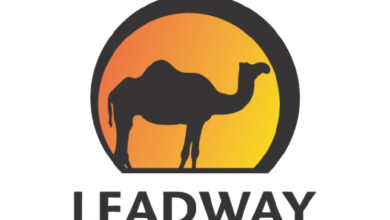Innovation and insurtech key to growing African insurance markets

A new survey has found that innovation and insurtech are essential to grow insurance markets in the next 12 months.
Some 61% of 300 insurers polled said that was the most likely growth area. A further 16% said training was critical, while 15% said risk and sustainability management was critical, and 7% said growth would be led by mergers and acquisitions.
The survey, conducted online by James Norman (pictured above), insurance SME and author, said the survey attracted more than 10,000 views from the insurance sector across the continent.
Diving deeper into innovation and technology, the survey revealed that to unlock innovation and insurtech developments, 47% of the sector believed it would come from partnerships and startups, while 27% said it required a change of culture and mindset, 18% said there needed to be an appetite to invest, while 8% said it would rely on external investment.
The final question was: what would make the most successful ingredient in a successful partnership? More than half (51%) of the respondents said it was dependent on a shared strategy and culture; 27% said it was about added value; 13% said it depended on clear measures and outcomes; and 9% said there needed to be clearly defined roles and responsibilities.

Bridging the gap between insurers and NGOs
One of the challenges for the insurance sector is being seen as relevant to the many thousands of NGOs operating in Africa. A new company, Rural Inclusion, is launching a pilot project in Uganda with the aim of bridging that gap.
Founder Jack Farren, who has worked in both the commercial insurance and microinsurance markets, said he had seen the need to convince NGOs that insurance was a valuable tool in building resilience among rural African communities. “Our goal is to provide education to those being helped by NGOs, to show people that insurance can help them build resilience for the future. Our education centres on finance and inclusivity. Our target markets are small business owners and also small farmers,” he explained.
For the next few months, Mr Farren will be in Uganda establishing the pilot project, working with an NGO that is delivering a school to a rural community, and will be targeting some 15,000 people. Rural Inclusion has also appointed a number of ambassadors across Africa to encourage greater communication between insurers and the local community.
“A lot of people in the insurance market are trying to sell to an audience that doesn’t understand the concept of insurance and is very unlikely to pay for it. The other challenge is that insurers tend to offer a product that they have designed and that might not be fit for purpose. We think that by working on consumer education, we can help insurers reach those large numbers of uninsureds across Africa,” said Mr Farren.
Source: Africa Ahead





